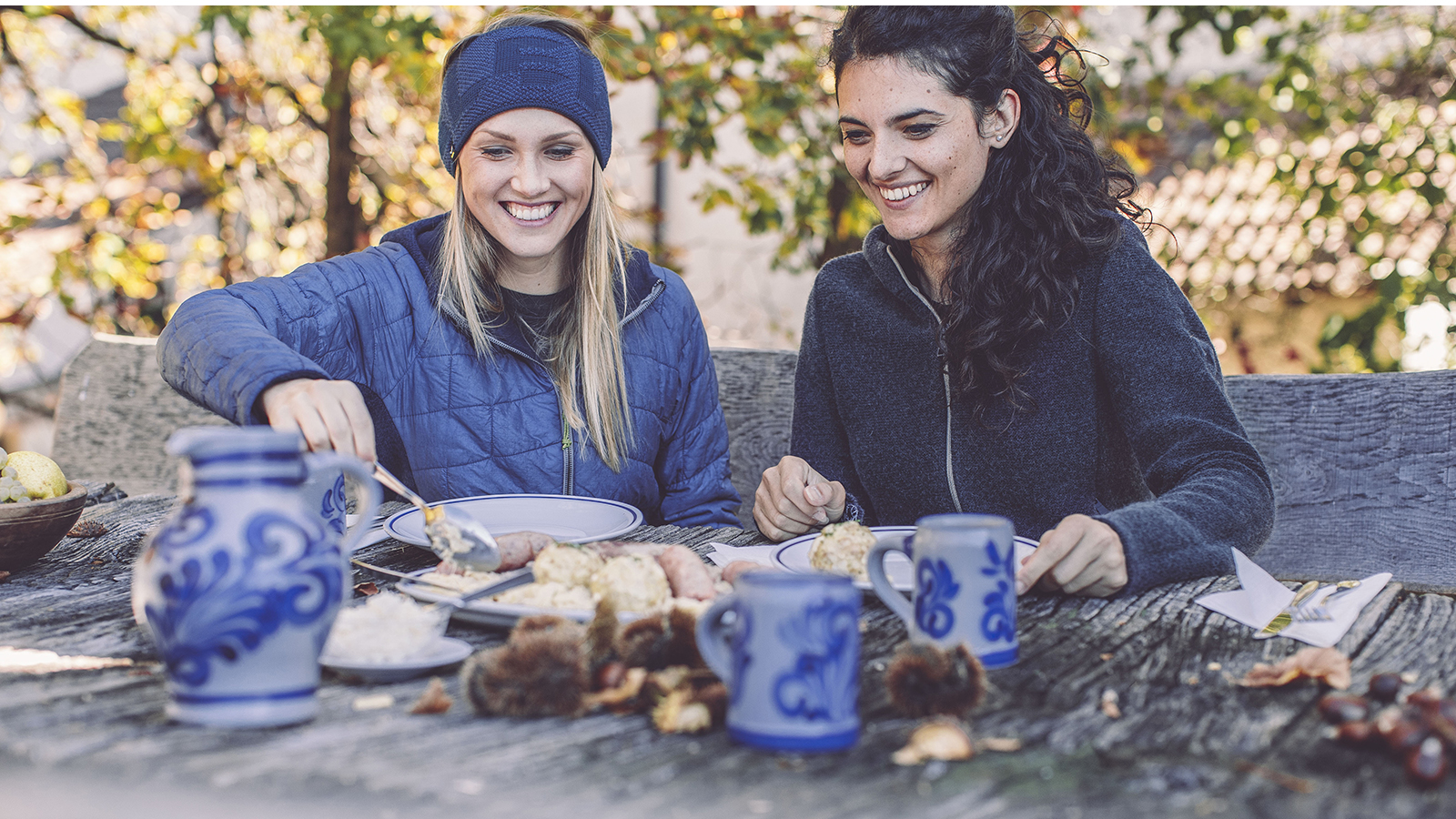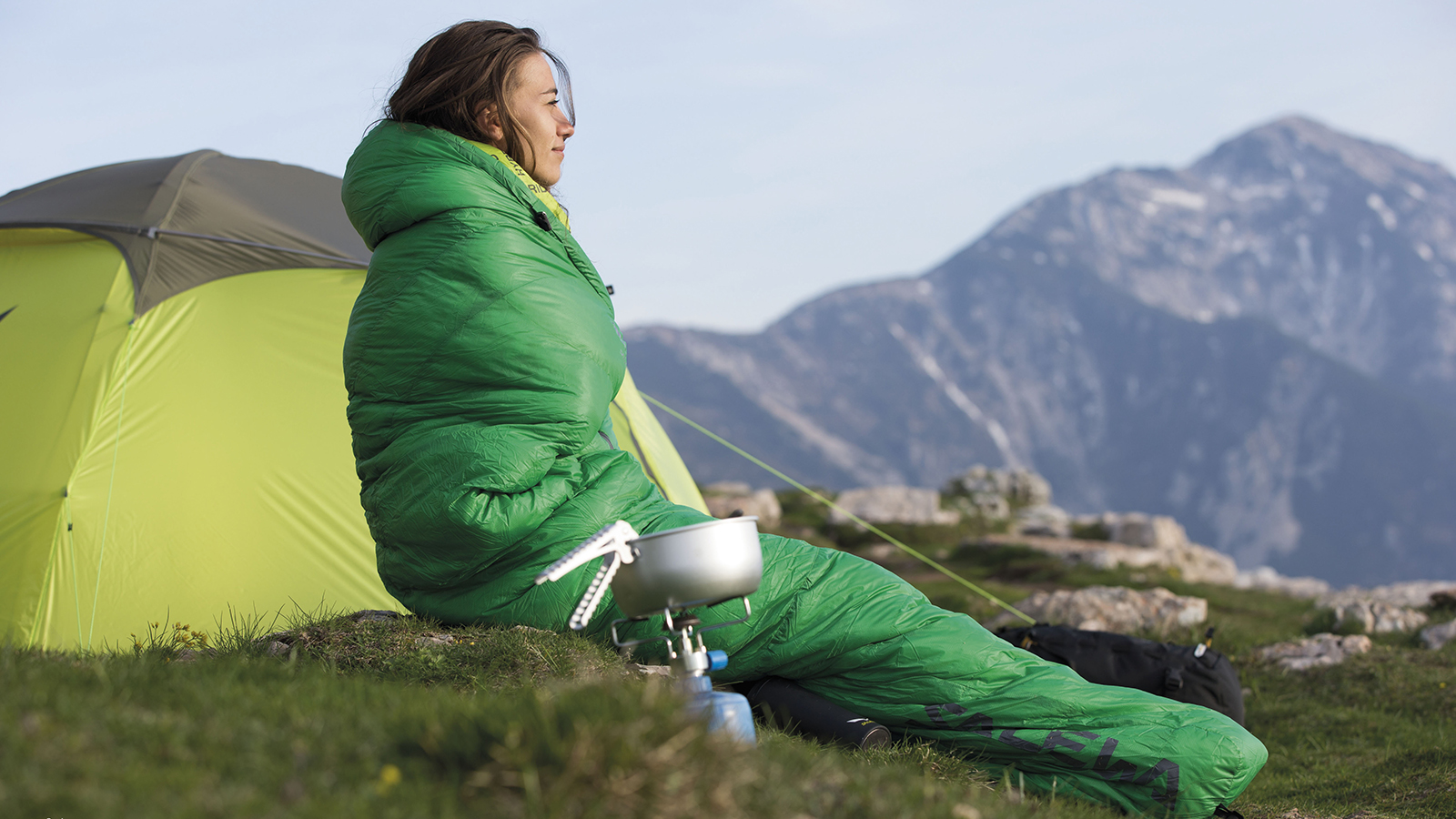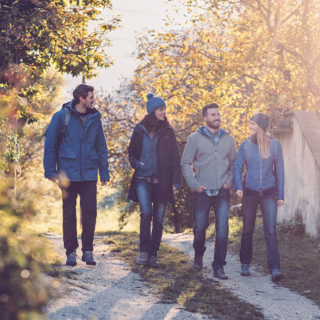Salewa – Sarner Tirol Wool Jacket
- Achievments:
-
Local Wool Supply Chain
- Local Wool Supply Chain
- ABOUT SALEWA AND WOOL SALEWA is a family-owned company, headquartered in Bolzano in the heart of the Dolomites. The Oberrauch family has been closely linked to wool and in particular Loden fabric for generations. In Vintl (South Tyrol), the traditional handcrafted technique for making Loden continues in their own factory to this day. This skillful expertise and extensive experience of working by hand with traditional fabrics is now being harnessed to make new technical products. In addition, in 2000 a Loden museum was built to present the history of manufacturing this high-quality fabric to future generations. With the “Sarner”, a classic piece of clothing worn by mountain people, SALEWA re-discovered the robust Sarner purl-knit structure that provides warmth and protection from icy winds. Spun and knit in Tyrol, every piece of SALEWA Sarner keeps traditional mountain knowledge and handcraft alive and supports small local businesses. With Tirol Wool, the story of woolmaking continues. In the valleys of Schnalstal and Ahrntal in South Tyrol, the ancient tradition of transhumance – the seasonal movement of livestock between summer and winter pastures – is used to this day. In June, the herders move their sheep from the valleys to the higher alpine pastures (alms), and then return in autumn. The sheep provide a fine example of cross-boundary cooperation, and inspired us to take up the “Tirol Wool” project.
-
- > View all 'Local Wool Supply Chain' evaluations
× -
PFC free
- PFC free
- PFC free means, that the water repellant treatment is done without the use of per-flourcarbonated chemicals.
-
- > View all 'PFC free' evaluations
×
ALPINE LIFE-cycle by Salewa
The history of SALEWA has been knitted with wool for generations. At home in the heart of the Dolomites, this family business decided to go against the trend of global trading of wool in the commodity market and instead, build upon the long proven experience of small, local handcraft businesses and create a direct value chain on its doorstep. The result, the Sarner Tirol Wool Jacket: local wool, collected and delivered directly by the Tirolean Sheep Breeder Association for the padding, durable Sarner spun and knit in Tyrol following the Alpine tradition, sewn in a classical Italian 20-man factory, dyed with a resource-friendly technology in Italy, easy to care, and – thanks to the timeless design, robust construction and reparability – a lifelong favorite to explore the mountains. These materials, chosen and made with much care and traditional expertise, are of great value to SALEWA and therefore even the cut-offs after production are not thrown away. They are sewn together into a new garment in the Italian factory, and the Sarner Tirol Wool Jacket becomes thus the parent of the Fanes Tirol Wool Vest for kids. Together, they become ambassadors of close local collaboration for the next generation of mountain explorers.
GRV’s View:
It’s an important and significant step to include and activate local supply chains in an increasing globalised world. This is an exemplary product line to show how well innovation and tradition can merge into something inspiring and beautiful.




Good
10 / 15
GRV Transparency ToolSalewa- Sarner Tirol Wool Jacket
2017

 Management
Management Commitment
Commitment Product
ProductBrand Management
- Salewa is a bluesign® system partner and Fair Wear Foundation Member
- Awarded with the first Italian Casa Clima Work&Life certification for HQ in Bolzano. The building is climate neutral with solar electricity production on-site.
- Work-life balance (audit familieundberuf) and in-house child care, support of environmental and social projects such as SOS Kinderdörfer, Salewa Garden for Refugees, Sherpa Women, Earthquake Relief Efforts, Salewa Upcycling with Akrat and Design University of Bolzano
- Support for local supply chains (wool)
Brand Commitment
- Regular GRI Reporting
- Salewa's “Environmentally friendlier products” are focussed on chemical safety, animal welfare and natural and recycled fibres. See % below. On social aspects, Salewa is working with Fair Wear Foundation.
- Salewa is involved in multi stakeholder initiatives like EOG, HIGG INDEX SME project, FWF, BSI (CSR working group) and animal welfare working groups.
Product
- Made mainly from local wool, with a small % of Polyamide and conventional merino (lining).
- All wool is mulesing-fee and tracable back to the farm.
- The local wool supply chain supports small farmers and manufacturers, keeps tradition alive and creates positive impact.
- No PFC’s, no chlorine
- Easy to dissemble and recycle. Cut-offs are transformed into new product, which minimizes waste.
- Brand Management
- Brand Commitment
- Product
Brand Management for us at GRV means to look at all the issues, which are directly controlled and integrated by the Brand’s Management towards business and supply chain strategy as a whole.
Brand Commitment for us at GRV means to look at the pro-active efforts towards sustainable development on all levels like the % of “sustainable product” lines within the whole portfolio, their investment in life cycle assessments and public reporting, as key indicators of the Brands engagement towards a responsible business.
On this level GRV is looking at product related information, like material content, supply chain and certification. Guarantee and end of use advice is also an important aspect. At the moment, GRV is looking at selected highlight product from different product lines, which show the special sustainable efforts of the brand.




/ 5
Integration of sustainability
Salewa has a designated group of four people, which are committed to implement CSR into brands activities as well as being the link into the other brands of Oberalp Group.
Certificates
Salewa is a bluesign® system partner since 2011, which means access to comprehensive chemical management within the supply chain and the obligation to use an increasing quantity of bluesign® fabrics.
less
Their Quality Management is done with the ISO 90001 Series.
Salewa is a member of the Fair Wear Foundation since 2013.
“In 2015, SALEWA & DYNAFIT meets most of FWF’s management system requirements. With a benchmarking score of 71, it is well within the Good category.”Emission Management
Salewa is calculating its Corporate Carbon Footprint for all their offices and retail stores in collaboration with myclimate. The focus lies on the CO2 emission management at its headquarters, which holds the Casa Clima certification and is climate neutral with solar electricity production on-site.
lessSourcing Philosophy
Long-term relationships within their supply chain, their environmental and social sourcing guidelines are implemented worldwide.
less
Social Auditing is done via Fair Wear Foundation at manufacturing level.Environmental & Social Projects
Salewa headquarters holds the Casa Clima “Work-life” certificate. It was Italy’s first building to receive this certification for a sustainable working environment.
less
The Audit “familieundberuf” includes day care for babies and children, the possibility to work part time and to prolong the official maternity leave. Even fathers can take time off to look after their children.
SALEWA also supports SOS Kinderdörfer, Salewa Garden for Refugees, Sherpa Women, Earthquake Relief Efforts, Salewa Upcycling with Akrat and Design University of Bolzano.Design Process
Salewa follows a conventional design process, but some pilot projects like the local wool project “Tyrol Wool”, or closing the loop with a fully recycled sleeping bag are in place to inspire movement towards eco design.
lessEvent Management
The trade-show booth has been built for the Outdoor Show in 2014 and was used until ISPO 2017, so for six shows all together minimum. All the booth elements (floor, wall, seats, displays, screens, tables) are stored in a warehouse almost within 100 meters from ISPO, and still within a reasonable distance from the OutdoorShow.
Only few minor graphics change over the seasons. Independently from the nature of the material, no waste is created during dismantling.
The walls and booth structures are constructed with aluminum frames. Fabrics, which account for the biggest part of the booth, occupy only a really small space and are light for transportation.
Most of the display elements are reused in Salewa’s properties such as the Brand Store and headquarters for merchandise purposes.
Booth overall 70% recycled content: – 60% rec. wood (plywood, chipboard) – 20% fabric material (non recycled) – 10% rec. Vinyl flooring – 10% not rec. Metal frames.
All Marketingbanners used at the tradeshow (and in shops for campaigns) are collected by CSR and provided to a local Upcycling Company in Bolzano (Akrat). They transform the banners into bags, pillows cases and similar items under the Salewa Upcycle Collection.
lessProduct Transport
They measure inbound and outbound transportation options and there is a strategy in place to measure and reduce emissions constantly. A pilot project aiming to bring more road transport to train transport started in 2016.
lessPackaging & Labeling
Packaging and labeling is 30-50% recycled content, no PVC and non-bleached.
Material Program & Testing
Salewa has documentation of all major substances and targets to reduce environmental impacts. This is put in place by the use of the SME Higg Index project, which gives access to the Higg Suite of tools, including the Development Design Module to monitor material impact.
less
Salewa tests their performance driven product intensively at laboratories and in field tests.Repair & End of Use
Salewa offers in-house repair service at the headquarters in Bolzano for Shoes, Equipment and Technical Hardware within two days, and all Apparel or repairs that include sewing work are sent to the office in Montebelluna (2hrs South from Bolzano) and are repaired within five days. Every year, each country pre-orders expected spare-parts, based on which Salewa develops a collective spare-parts catalogue for the central repair service team.
less
Life Cycle Assessment
Salewa are planning an LCA (or LCA’s) for 2017/18.
LCA’s give the brand a detailed analysis of a product impact to be optimised with the goal to reduce environmental harm.Reporting
The reporting tonus at the Oberalp Group is every two years. They have published regular reports according to international guidelines GRI 3.1 in 2011 and 2013. For 2015 GRI 4 was planned but because of limited human resources caused by maternity leave, Salewa did a Magazine by the name of “Contribute” instead, which explains all environmental and social issues around Salewa’s activities. In the future the tonus will be yearly starting in 2017 with the newly updated GRI Standards.
lessShare of “Environmentally friendlier” products
In order to define an “environmentally friendlier”product, Salewa started to collect data by three relevant fields of action:
Chemical safety, animal welfare and natural or recycled materials.
1. Chemical safety in 2017: via the bluesign® System (winter: 30%, summer: 35%) and Oekotex 100 (winter 2016: 76%, summer 83%)
PFC free styles: Summer 28%, winter 17% (% are for all pieces, that traditionally have a DWR)
2. Animal welfare in 2017: focus on wool and down.
Winter 2017 is 100% mulesing free. One of Salewa’s major projects is the locally sourced Tyrolian wool. In winter 2017 and summer 2017 all wool is mulesing-free by self declaration of the suppliers.
Salewa uses RDS (Responsible Down Standard) certified down for apparel or recycled down for equipment.
Apparel: 100% RDS, Equipment: 10% recycled down.
3. Natural or recycled materials: Wool, linen, organic cotton and recycled polyester. Winter 2017: 22%, Summer 2017: 30%
lessShare of “socially responsible” products
Salewa measures the % of the production volume, which is produced by an audited by FWF factory or low risk countries.
87% in 2015,
90% in 2016.Innovation
Budgets towards sustainable innovation are under 5% of total turnover. One dedicated person in Apparel design & product development is focusing on innovation. Her main projects are on locally sourced wool to combine tradition and innovation.
lessCredibility
To stay close to the opinion of the people who work for Salewa, there is a survey of staff conducted all 2-3 years.
less
Salewa is also involved in multi stakeholder initiatives:
EOG, HIGG SME project, FWF, BSI (CSR working group), RDS & RWS working groups.Progress
1. Reduction to max. 10% of products with DWR to contain any C6 Chemistry in 2017’s production.
less
2. 100% RDS or recycled own within apparel collection: (W16: 50% à S17: 58% à W17: 78%)
3. 100% natural or recycled main fabrics (S17: 19% à W17/18: 22%)Common Welfare Investment
Salewa is active in numerous multi-stakeholder groups. EOG, RDS, RWS, FWF, GRV, Higg SME Project, BSI CSR Arbeitsgruppe
Design
This timeless product is supposed to show the experience and lifestyle of the local people to connect traditional manufacturing practices with contemporary design.
Sourcing Strategy
To support the traditional local high wool quality supply chain, Salewa has invested into the local farming and handcrafting industry and build a network with small manufactures. This saves the traditional wool manufacturing in their region and enforces cultural heritage.
lessSupply Chain 1,2,3… Tier
The wool comes from local sources, all tiers are within a few kilometres from Salewa Headquarters. The Polyamide comes from far-east (as part of the fabrics, which they use in other products) but only makes up a few % of the overall product.
lessMaterial & Recycling
Wool and Polyamide can be separated and both materials are easy to recycle- Italy has a great tradition in quality wool recycling. There is some % of merino wool in some parts of the jacket for skin-sensory coming fromthe Italian fabric supplier REDA – which owns the entire production chain back to its own merino wool farms in New Zealand. This, all wool used in the product is fully traceable back to the sheep farm.
lessCertificates
The wool comes from a local supply chain with no certification. Because of the direct contact to each local partner, external certification would not be an extra value. Salewa is currently part of a stakeholder group to co-develop the adaption of the RWS for Tirol Wool, aiming to pilot the RWS group certification for small-scale wool supply chains.
lessTraceability
100 % of both the Tirol Wool as well as the merino wool is traceable back to the farm.
Chemical Management (PFC’s)
No PFC’s. Wool has a natural protection and the Polyamide also keeps moisture away. No chlorine is used, but instead an eco-friendly oxy-wash treatment makes the wool soft, odorless and washable.
Water, Waste & Energy Management
The collection, which results from the cut off’s of the Sarner Jacket, is designed to use “waste” to make new products – (kids, gloves). Water Management is looked at through the stringent guidelines within the European Alpine region. Moreover, the jacket is garment- and not piece-dyed in a Italian factory that uses a 100% closed loop water cycle. Energy is saved by very short transportation ways, all local.
lessSocial & Environmental Management
Cultural and traditional values are supported, manufacturing in south Tyrol has low risk of social exploitation. The direct purchase of the wool from the Tyrolean Sheep Breeder association allows to pay about 40% more to the farmers compared to the conventional auction. This product has an environmental benefit, because the “Alm-Wirtschaft” by sheep farming, has benefits for the biodiversity in flora and fauna.
lessAnimal Welfare
No mulesing practices allowed neither in local nor in merino wool (lining). The Tyrolean Mountain sheep are held in small herd size of average 21 animals, which allows to care for the sheep’s needs individually. Spending the summer on alpine pastures and grazing on nutritious alpine herbs further supports their health and natural behaviour.
lessLife Cycle Assessments
No
Maintenance & Care
Barely needs washing as the wool neutralizes body odors and cleans itself when aired. On mountain huts, Salewa advices to rub the wool against dry snow like our grandparents did, If washing is required: 30° Machine wash, clothing-line drying.
less
Evaluated Products

Salewa was founded 1935 by the saddler Josef Liebhart in Munich and was sold to the Oberalp Group in the 1990’s, owned by the Oberrauch Family in Bolzano, South Tirol. Oberalp has 600 employees. Salewa is best know for: alpinism, tents, shoes, outdoor apparel and back-packs.



